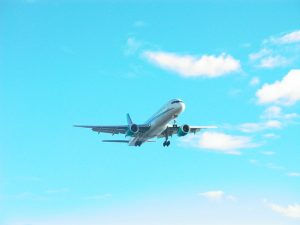A recent survey from Association of Flight Attendants has revealed some disturbing statistics about sexual harassment in the field.  According to the survey, 68 percent of respondents said they have experienced sexual harassment during their career. Even when isolated to just the past year, 35 percent reported verbal harassment and 20 percent physical harassment. This is a significant jump over a nationwide poll, which shows 38 percent of respondents experienced workplace harassment in their careers, according to an SF Gate report. The survey that addressed all women, released by Stop Street Harassment, Raliance, and Center on Gender Equity and Health, showed 81 percent of women have experienced sexual harassment in general, whether inside or outside the workplace.
According to the survey, 68 percent of respondents said they have experienced sexual harassment during their career. Even when isolated to just the past year, 35 percent reported verbal harassment and 20 percent physical harassment. This is a significant jump over a nationwide poll, which shows 38 percent of respondents experienced workplace harassment in their careers, according to an SF Gate report. The survey that addressed all women, released by Stop Street Harassment, Raliance, and Center on Gender Equity and Health, showed 81 percent of women have experienced sexual harassment in general, whether inside or outside the workplace.
This could explain why the number is much higher for flight attendants than other workers. In other work environments, workers are often interacting with other employees. There is more oversight and potential consequence for sexual harassment. Employees see each other every day, so there is no anonymity. If the company acts with integrity, there are strict rules and prevention strategies already in place. Even with all of those factors, a shocking number of people still face harassment. But on an airplane, attendants are interacting with strangers every day. They are in tight quarters and sometimes serving drinks to guests. Not to mention, flight attendants have long been sexualized in media and advertising, adding fuel to the fire of people who think they are entitled to harass others.
U.S. Equal Employment Opportunity Commission defines harassment as actions that are severe and pervasive, enough so that sharing a work environment becomes intimidating. If enduring the behavior becomes necessary to sustain employment, this too would be a violation. Generally, though, small interactions or isolated infractions do not hold up in court as harassment. While this shouldn’t be necessary, sometimes avoiding causal interactions with an offensive person can limit harm, assuming you do not have to regularly interact for your job. However, imagine if those small offenses were being regularly committed by hundreds of different people whom you were forced to share a small enclosed space with thousands of feet in the air. Suddenly it can feel much harder to feel comfortable.
This creates a situation where flight attendants regularly experience sexual harassment in the workplace without traditional avenues of recourse. Unless the actions are deemed criminal, it is easy for flight attendants to feel helpless. Reported behaviors include lewd, unwanted, and suggestive comments, as well as sharing of pornographic images and describing fantasy scenarios. While disgusting, these actions alone are not illegal, and will continue unless airlines take action to create a safer environment for attendants so they can focus on their job as first responders in emergencies and to serve the needs of all passengers.
It’s horrible to acknowledge, but sexual harassment has nearly become a way of life for many women. The dialogue on harassment and how to treat women needs to change and it needs to change now. Until that time, though, more protections need to be put in place to help women who are simply trying to live their lives and do their jobs. Our Orange County sexual harassment lawyers are proud to be part of the fight to protect the rights of workers in Southern California to experience healthy, safe, and harassment-free workplaces.
Contact the employment attorneys at Nassiri Law Group, practicing in Orange County, Riverside and Los Angeles. Call 949.375.4734.
Additional Resources:
Survey Reveals Widespread Harassment of Flight Attendants, May 10, 2018, Association of Flight Attendants
More Blog Entries:
Report: More Airline Employees Face Possible Discipline for Passenger Interactions, May 2, 2017, Orange County Employment Lawyers Blog
 Orange County Employment Lawyers Blog
Orange County Employment Lawyers Blog

